Róbert-Jenő Kovács, a 21-year-old Hungarian from Kolozsvár (Cluj-Napoca), is currently a second-year engineering student at the Faculty of Electronics, Telecommunications and Information Technology at the Technical University of Kolozsvár. But Róbert-Jenő Kovács is no ordinary student: He fell in love with aeromodelling at a very young age, winning several national and international aeromodelling competitions; Kovács developed himself, resisted and confronted deficiencies in the Romanian educational system, participated at numerous scientific conferences, and now has several inventions, one of which is already patented. In his interview with TransylvaniaNOW, he spoke about his passion, combining IT and engineering, and his inventions, while also describing the difficulties of being a creative, hard-working student in the incredibly obsolete and rigid Romanian educational system.
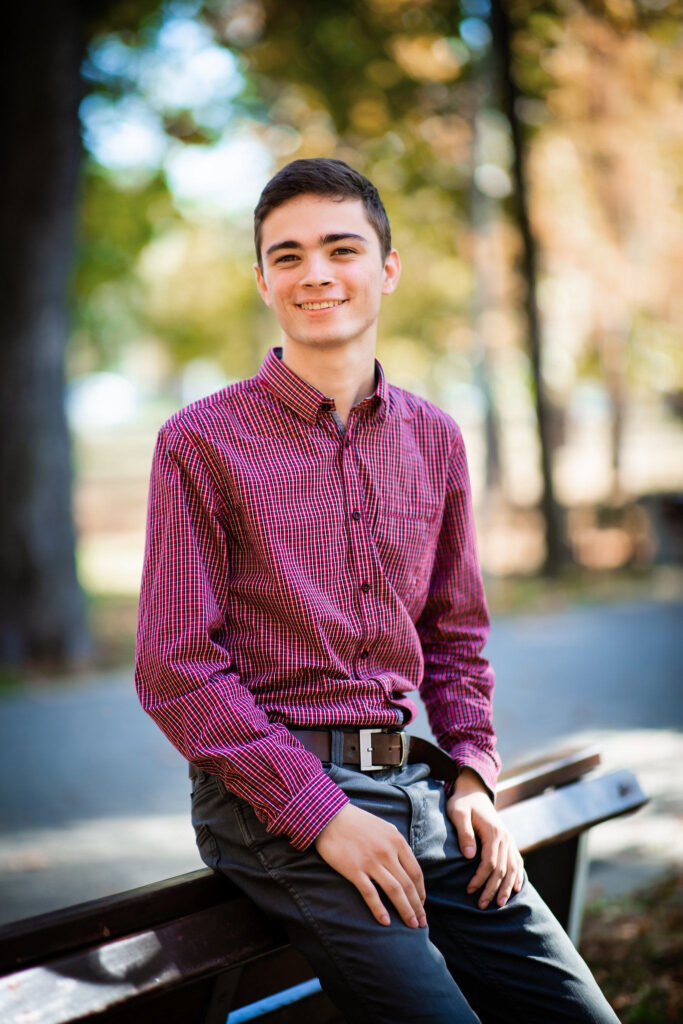
Inventor of a smart flowerpot and an innovative computer cooling system, Róbert-Jenő Kovács is an open-minded, experienced young inventor who likes to express his impressions, perceptions and opinions.
“I got interested in crafting when I was really small and started attending the Children’s Palace aeromodelling club in Kolozsvár when I was in the 2nd and 3rd grade. As a member of the club, I attended national competitions in the 3rd grade. I also designed Arduino-based control units and timers for my planes over the years, which allowed me to become a member of the Romanian national team, and attended and won European and World Championships,” Kovács said as to how he got interested in crafting.
“In 11th grade, I saw the poster of the Youth Innovation and Talent Recruitment Contest and started my very first large project, the IOC (Immersed Oil Cooling) cooling system, with which I attended several competitions and managed to get great qualifications. Since then, I have been working, and I have a new project every 1-2 years,” Róbert-Jenő Kovács said.
While many young children like crafting or building, very few of them choose to present their ideas, inventions or devices at scientific events or conferences. This is not the case with Jenő-Róbert Kovács, who attended many scientific competitions and events, like the Transylvanian Conference of School Student Clubs, the Youth Innovation and Talent Recruitment Contest and the National Conference of Researching Students in Hungary.
Because he won an award at the National Conference of Researching Students as a high school student, he also qualified for the National Scientific Students’ Associations Conference, one of the largest and most prestigious university student scientific conferences in Hungary. Kovács and his smart pot won a Special Award from the jury.
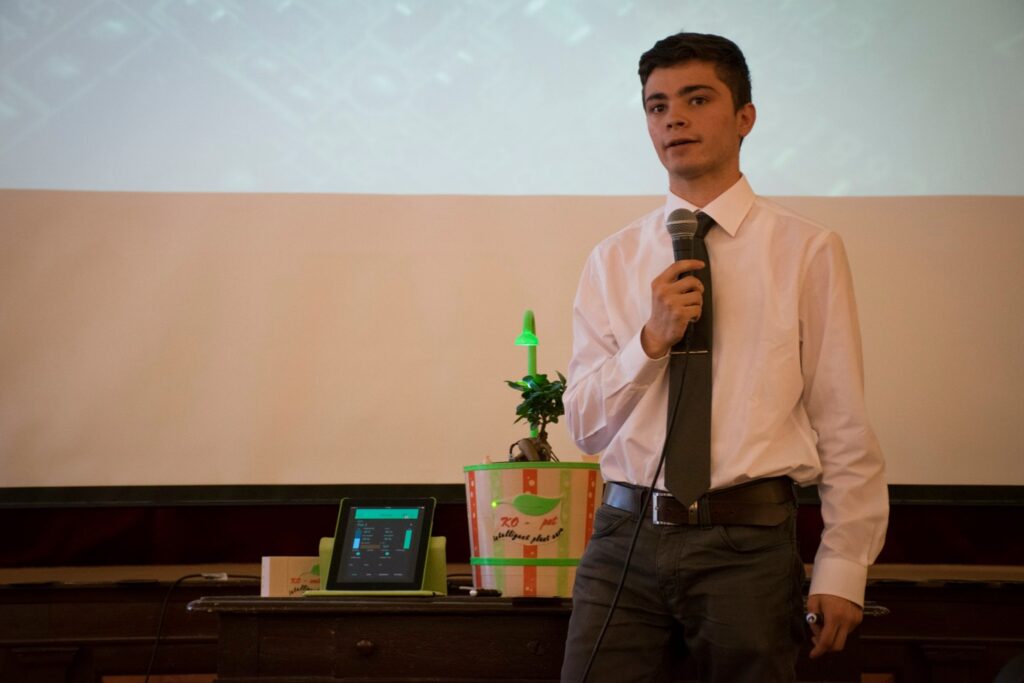
“I never liked simple theoretical knowledge, and these competitions differ from others because you don’t need to memorize a lot of stuff. You have to learn a lot, but you don’t have to memorize word for word. And I also liked that I could stand out in front of an audience and talk freely about what I really like to do. By the way, I found that learning the skill of standing in front of an audience and talking freely is important in our society, but 12 years of school and 4-6 years of university does not teach this skill. I watched a lot of TED Talks, Apple product presentations, or professional presentations on the internet, and based on that and my own experiences, I formed my very own pitch style,” Róbert-Jenő Kovács said.
Some of Kovács’ inventions, which he has pitched at different conferences, are the KO-pot, a smart flowerpot, and the IOC Immersed Oil Cooling system, the basis of which he developed in high school. Both of the devices are full of innovative elements, which do not exist on the market and have not been patented by anyone in any country of the world, the young inventor said.
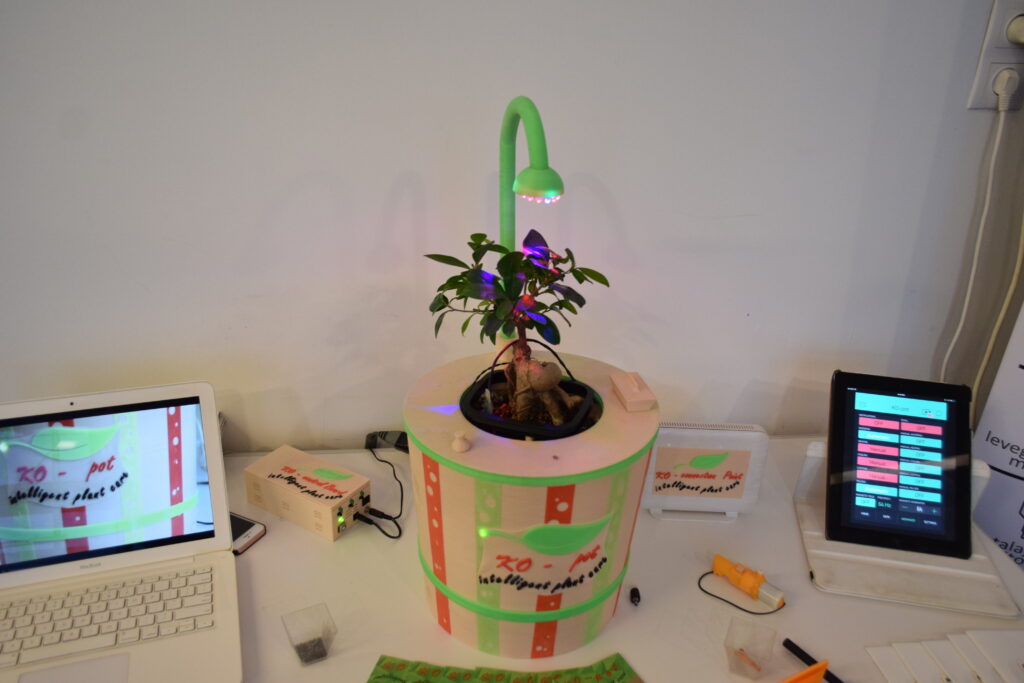
“The KO-pot is a smart flowerpot with a fully automatized control system; the user doesn’t have to pour water in the reservoir due to the integrated dehumidifier module, which extracts the water from air humidity. Such a product does not exist on the market yet. The IOC is a computer cooling system, the basis of which has been used in transformers for a long time. However, I took the theory behind this technology and used it in computers, although I made some significant changes: I placed air pumps in the oil and division walls in the reservoirs. So the system is more silent and safer, and I managed to achieve a higher cooling performance compared to air and liquid cooling systems widely used nowadays,” Róbert-Jenő Kovács said.
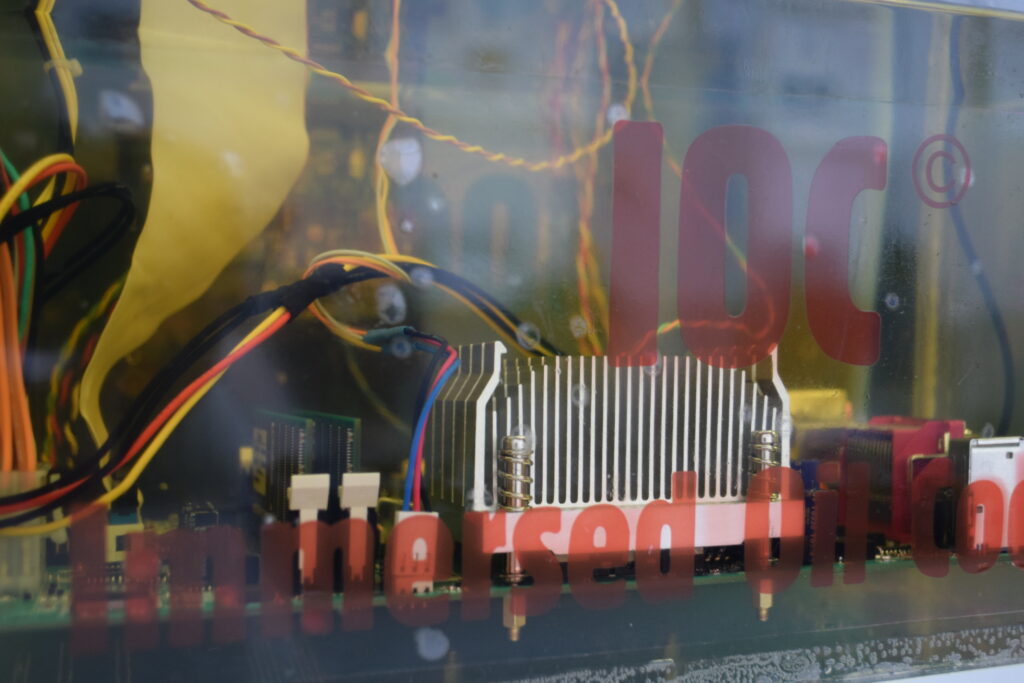
As the young engineering student said, he was really interested in computers from a very young age and helped his parents maintain the computers at their firm. “I realized that they are always filled with dust and overheat really fast, and then would be ruined because of it. That is why I started working on the IOC system. The story of KO-pot is different; I really like flowers, but to care for them regularly is challenging. Since I really like to design and implement automation, it was a technical curiosity for me to see if I could design a fully autonomous system that could take care of my flowers,” Róbert-Jenő Kovács said, sharing the stories behind his inventions.
The Romanian educational system is based on theoretical teaching; there is little emphasis on putting theoretical things into practice, to teach students how to turn the learned information into practice, so it is very interesting to see how some students manage to use their knowledge and skills in life. We asked Róbert-Jenő Kovács who helped him to learn so much about crafting, IT, engineering or planning and developing — was it his school or his family that helped him pursue his dream and passion.
“In the beginning, while I was modelling airplanes, the Children’s Palace club helped me a lot. However, my parents, especially my father also helped me — he also loved to craft at home. Later on, when preparing for scientific competitions and conferences, my father helped me, but I also learned a lot by myself. At a very young age, I managed to learn how to use the advantages of the internet, how to get information, but I also put a lot of effort into reaching my goals,” Kovács said.
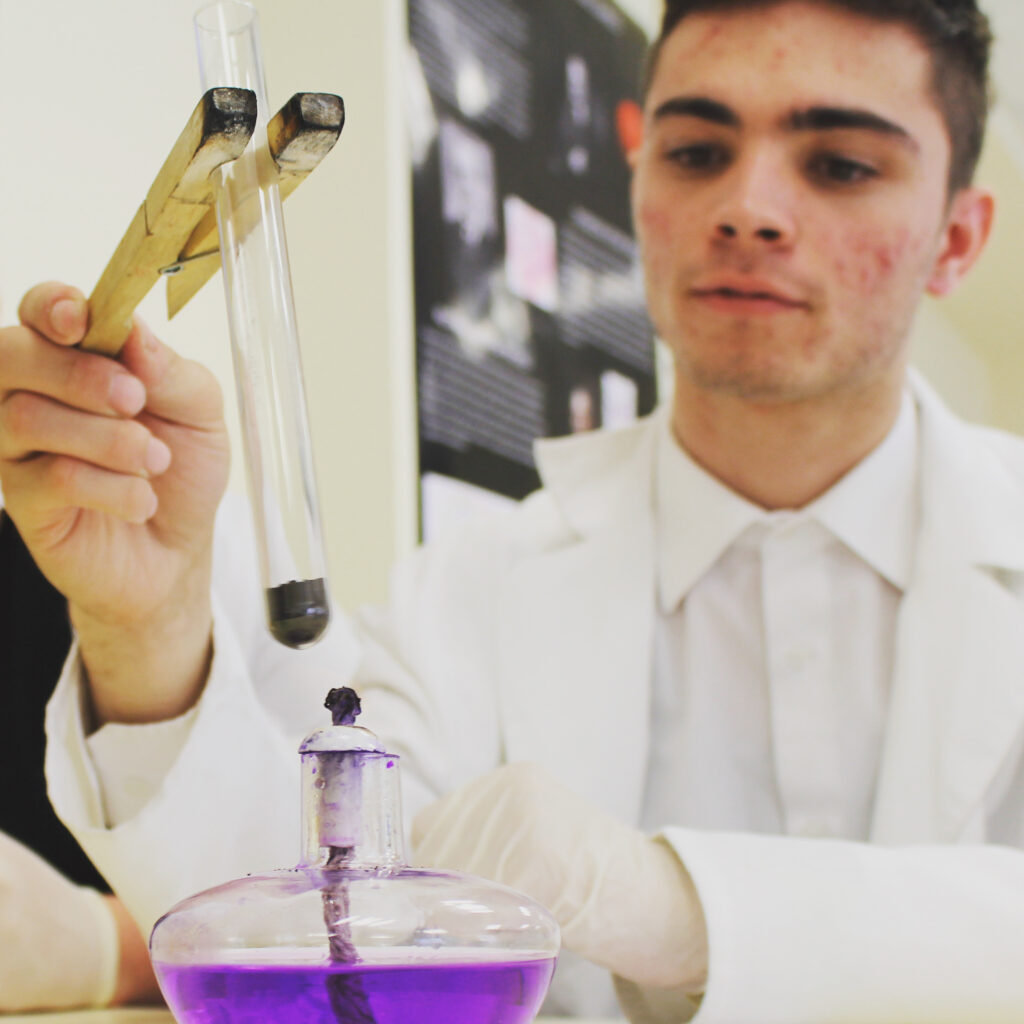
However, according to the young inventor, as expected, school was not the place that supported him in his adventure, in his early career. As Róbert-Jenő Kovács said, his physics teacher, Márta Popa, really supported him and other students in attending such conferences and even prepared him. “She did everything she could, but this is not the case with every teacher,” Kovács said, adding that some of his teachers discouraged extracurricular activities and even tried to hold him back. “They tried to divert me from this direction, they did not want to accept these competitions as in Romania, student competitions are mostly theoretical,” the young innovator said.
The young researcher also said that he loved to combine IT and technical sciences, but he was held back by the Romanian educational system yet again. “For technical stuff, I have to say that I was dependent on my dad, the internet and myself. For example, our IT teacher, besides the fact that she never liked my activities, she did not understand at all the side of IT I used. Or, our technology teacher, who taught technical drawing in the 5th grade, was never able to help me when I asked him to teach me how to use a 3D design program, like Solidworks or AutoCAD,” the inventor said, adding that at international competitions, he always felt like foreigner students had more help from their teachers.
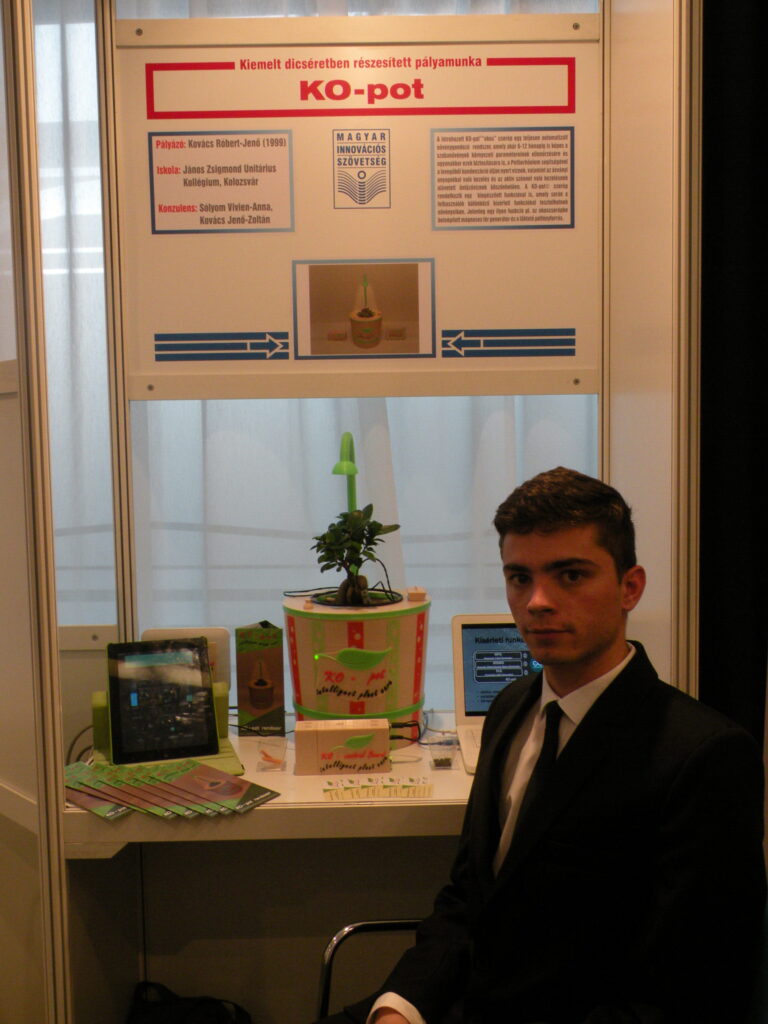
“I also had the feeling that I have fewer possibilities than a student from another country. For example, every larger school in Hungary had a 3D printer, but we did not. In the end, in the last year of high school, we got one, but no one has used it to this day,” Róbert-Jenő Kovács added.
So the young engineer and inventor worked alone on his devices; only his father helped him and some firms. One firm 3D-printed some elements for him, Róbert-Jenő Kovács said as an example.
“I have also done the patenting alone with my father. It is a very tiring job, especially without practice, but with enough determination, you can cope with the task. Both of my major inventions are in the process of being patented; the IOC system already has the final patent, and the smart pot is in progress. I haven’t found any investors yet for any of my products; maybe investors who would be interested haven’t heard of them. However, I see great potential in the IOC system, as the 21st century is built around computers, and their cooling is a part of them; it is one of the biggest problems of electronics to solve,” Kovács stressed.
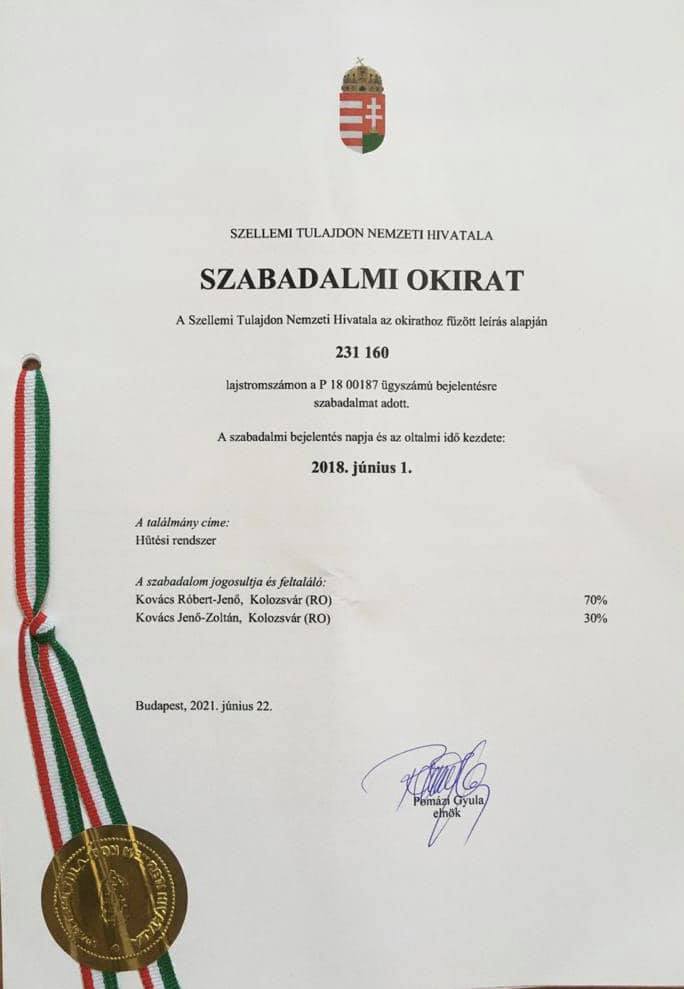
Even though the business sector has not yet discovered the Hungarian researcher, the scientific society has already noticed the talent of the young inventor and is helping his development and professional progression.
“The scientific community has valued my ideas and me from the very beginning, as I quickly got on the podium at different competitions and conferences. I have a great relationship with many university teachers and the jury at some of these competitions. I also participated at professional camps, and I have become friends and acquaintances with people with similar interests,” Róbert-Jenő Kovács said. He is also a member of the Engineering workshop of the Eötvös Lóránd University in Hungary and has a scholarship from the university through the Áron Márton Special College. However, even though university might seem a better environment for such a creative and passionate young man, Róbert-Jenő Kovács was disappointed again.
“I have to say that I feel like my university, the Technical University of Kolozsvár, does not offer more than my high school. I have not experienced any advantage, like professional help or a greatly equipped laboratory. The Engineering workshop at the Eötvös Lóránd University is a great thing; it helps me a lot professionally, and the professors are very passionate. However, my university does not have workshops, or the possibilities it does offer are lacking. For example, I am working now on a project, which I will publish in a scientific journal, but I have the same feeling as in high school: Still no 3D printer to print some stuff, and if I have any question, I am on my own. My father is the only one there for me,” Róbert-Jenő Kovács said.
However, the young inventor won’t back down because of some shortcomings or difficulties. Moreover, he decided to help high school students that are in very similar shoes.
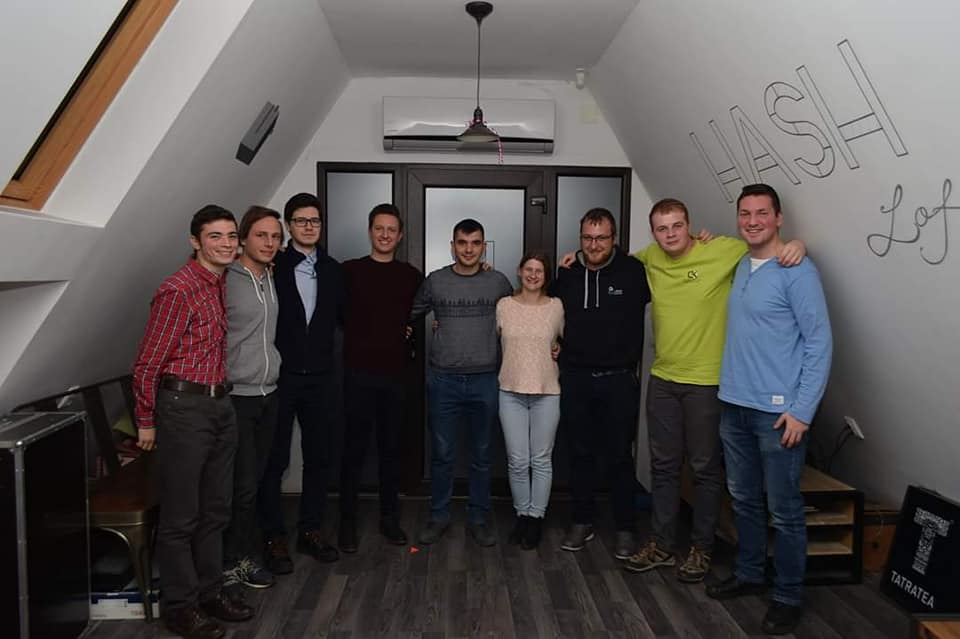
“I am a member of the Transylvanian Innovation Workshop and a mentor at workshops run by the Program for Young People in Transylvania. Within the framework of this program, I and some friends, university students, strive to create for talented young people in Transylvania what’s missing from the Romanian education system and help them to prepare for conferences,” Róbert-Jenő Kovács said.
When asked where he sees himself in 5-10 years, Kovács stressed that ever since he was a kid, he has wanted to do something in his life that he loved, something filled with challenges.
“This dream did not change over the years—it only strengthened. I would love to work on the development and design of automation and IoT systems, maybe to have my own business that deals with this, designs and implements new electronic, personalized automations,” the engineering student and innovator concluded.
Photos: Róbert-Jenő Kovács